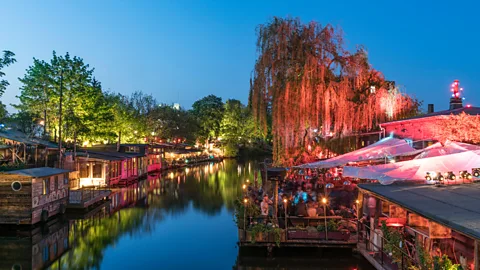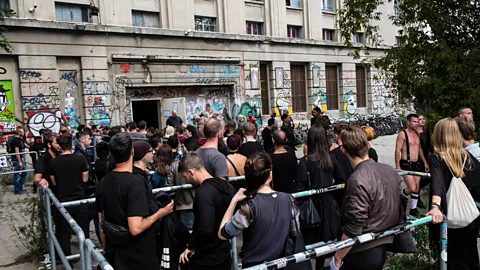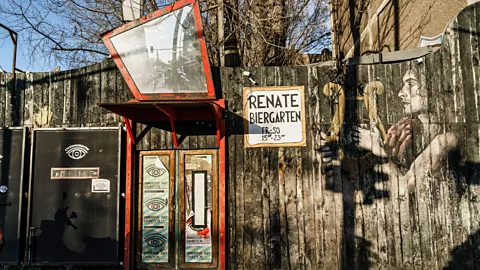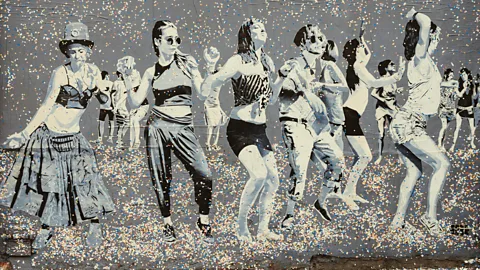Is this the end of Berlin's famous club scene?
 Alamy
AlamyFrom techno temples to hedonistic hideouts, anything-goes revelry has been core to Berlin's soul for the past century. But rising rents and rapid gentrification may soon kill the party.
Paris has fashion, Copenhagen has design, Berlin has clubs. From multi-day raves in former Cold War bunkers to hedonistic hideouts where anything goes and phones are banned, the German capital has been luring libertines and showing the world how to party since its decadent Weimar days a century ago.
That's why Germany added Berlin's techno scene to the country's national registry of Intangible Culture in March 2024. It was a nod to the music's role as the soundtrack of Berlin's counter-cultural core – the same one that helped topple the Berlin Wall; lead its former mayor to declare it "poor but sexy"; and, until recently, stave off large-scale gentrification.
But in November, a non-profit organisation representing the interests of Berlin clubs, released a report warning that half of the city's roughly 250 clubs are at risk of closing in 2025 due to Berlin's rapidly rising rents, gentrification and changing demographics – a figure that has doubled since club owners surveyed nine months earlier.
 Alamy
AlamyForeigners and German tourists have long been drawn to Berlin for its cheaper rents (compared to other European capitals) and freewheeling live-and-let-live ethos. The city actively promotes its fabled club culture to tourists, even as recent headlines declare a "club death spiral" and "the end of the party". Last month, the city's English-language arts and culture magazine, The Berliner pondered if the city's club scene would ever fully recover, leaving many to wonder whether one of the main reasons travellers have long flocked to Berlin may soon vanish.
For Emiko Gejic, spokesperson for the Club Commission, which released the report, the so-called "death of Berlin culture" is nothing new. Gentrification and the pricing out of cultural spaces have been happening for years. What's new, she says, is a perfect storm of additional factors, such as the lingering financial distress from the Covid-19 pandemic, inflation, increased operating costs and a decline in visitors – all of which have led some club owners to throw in the towel.
The most recent highly publicised closing is Watergate. After 22 years, the Kreuzberg club succumbed to increasing economic pressure and shuttered this past New Year's Eve.
Some clubs have faced individual challenges that have forced their closure, or at the very least, threatened their existence. Gejic points to the re-development plan of Berlin's Rummelsburg district, which forced the Rummels Bucht club to close in September 2020 in favour of a new aquarium opening next year and new apartments. Then there's the planned extension of the A100 highway that would threaten clubs like Renate, Else, Neue Zukunft, about blank, Oxi and Club Ost.
 Alamy
AlamyAni Anca, a Romanian entrepreneur who has been coming to Berlin to party at its clubs for the past decade, says she was initially drawn by its reputation as the "mecca of clubbing". Years ago, some Berliners she had met at Burning Man took her to Sisyphos – a large warehouse-style venue just down the road from the now-closed Rummelsbucht.
"Sisyphos was something that I never experienced," she said. "I mean, it was a Saturday night and I had met people that were there since Wednesday."
Anca says people came to the club the same way you'd prepare for a festival, complete with a change of clothes, towels and food.
"The clubs [in Berlin] were designed in such a way that you can immerse yourself in different worlds, ranging from a dark dungeon to a funky winter house with happy music," she says. "People walking in between the different worlds on these paths where lots of conversations, lots of connections would spontaneously emerge."
With the most recent reports of the demise of the city's club culture, Anca wonders what's next for Berlin. But even as a loyal fan of its club scene, she isn't surprised change is coming.
 Alamy
Alamy"I think there are many different reasons why Berlin [club] culture is declining," she says. "First of all, there's a change of generations. As we know, the people coming behind Millennials, Generation Z, have a much healthier lifestyle. A lot of them are not drinking, let alone using other substances that we can't ignore that were an integral part of the culture of the clubs in Berlin."
Indeed, a separate report from the Club Commission found that the average estimated age of clubbers, according to club owners, was 30. Only nine percent were estimated to be between the ages of 18-21. And 52% of clubs reported an overall decline in attendance.
Those who don't want to start their night at 02:00 or use illegal substances to get through the night are precisely who Tom Boerman and Elena Kunze are targeting with the opening of Electric Social. Located just around the corner from the always-busy Alexanderplatz, the arcade bar caters to group events and younger crowds who'd rather have a casual night out with some games than wait in infamously long lines that can last for hours, with a bouncer who might reject someone based on something as subjective as their vibe.
Boerman empathises with club owners but thinks fears that club culture will die in Berlin are overblown.
"There are a lot of changing factors working against the entertainment industry right now and these changes bring uncertainty," he says. "It's natural that this would cause stress and pessimism, but Berlin is a club town – there will always be clubs. And these challenges are not unique to clubs. They impact bars, restaurants and all other entertainment. Unless we want nothing but clubs in Berlin, we need to find a way to support entertainment as a whole."
 Alamy
AlamyBoth Boerman and Kunze argue that rising rents and changes in the city's partying scene since the pandemic is simply catching up with clubs. For instance, Kunze suggests that skyrocketing beer prices force people to stick to just one drink a night.
"Clubs can't survive on that," she says "Especially those that used to sell bottles of liquor to tables by the hour."
At the end of the day, Boerman says clubs can no longer acquire or maintain formerly abandoned spaces while paying low rents, which has long been key to their survival.
"What other business are there that can locate in derelict or abandoned property on the outskirts of the city and still have lines out the door for 12 hours straight?" he asks. That said, he doesn't think Berlin's clubs will fade away anytime soon.
"It won't be easy, but I'm sure clubs will adapt and find a way forward."
--
If you liked this story, sign up for The Essential List newsletter – a handpicked selection of features, videos and can't-miss news, delivered to your inbox twice a week.
